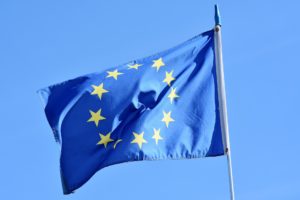Highlights from the Past Week
CW 14 / Monday, 3 to Friday, 7 April: Green Week (no meetings);
CSAM – DISCUSSION ON THE ANTICIPATED IMPACT ASSESSMENT IN EP COMMITTEE: On Thursday, MEPs from the Civil Liberties Committee (LIBE), the lead committee on the “Regulation to prevent and combat child sexual abuse”, met to hear the results of a follow-up impact assessment on the Commission’s proposal.
Although the proposal was already accompanied by an impact assessment when it was first presented in May 2022, concerns remain about the possible impact of the text on fundamental rights. For this reason, the LIBE Committee has asked the European Parliamentary Research Service (EPRS) to carry out a follow-on impact assessment to critically review and supplement the analysis, data and information contained in the original impact assessment.
In parallel, the Council experts of the Law Enforcement Working Party (Police) will continue their work on the Commission’s proposal on 13 April.
E-EVIDENCE – EP VOTE IN MAY: The vote in the European Parliament to confirm the trilogue result in the e-Evidence negotiations was actually expected to take place in April. However, according to current information, this should now happen during the Strasbourg week from 8 May. (see EU Issue Tracker, paywall)
PRIVACY I – EP VOTES ON TADPF: The EU Commission and the US have been negotiating a renewed Trans-Atlantic Data Privacy Framework (TADPF) and reached a political agreement in principle on 25 March 2022.
Following the publication of the Executive Order by the US President, on 12 December 2022 the EU Commission submitted a a preliminary “adequacy decision” on the protection provided by the new Trans-Atlantic Data Privacy Framework under the GDPR.
In parallel, the European Parliament has a right of scrutiny over adequacy decisions. In mid-February 2023, the European Parliament’s Committee on Civil Liberties, Justice and Home Affairs (LIBE) published a draft motion for a resolution on the TADPF, calling on the Commission not to adopt its draft adequacy decision, as it considers that the framework does not create a real parity in the level of protection.
The LIBE Committee will vote on the draft motion for a resolution and the amendments tabled to it on 13 April 2023.
PRIVACY II – EU COMMISSION TO PRESENT COOKIE PLEDGE BY END OF APRIL: At the end of March, EU Justice Commissioner Didier Reynders announced that he wanted to mobilise platforms to put an end to “cookie fatigue”. The Commission’s consumer protection department is organising a series of roundtable discussions with platforms, publishers and advertisers. The first roundtable discussion will take place on 28 April, with the objective to “propose simpler choices of advertising models to consumers, respecting, if this is so, their wish not to be tracked”. (see Euractiv)
ENCRYPTION – ACTIVISTS CRITICISE EU-US PLAN: A coalition of digital rights NGOs have called out a transatlantic plan to defend encryption, following leaks about a high-level meeting of US-EU officials (see Statewatch).
In an open letter (PDF) sent on 6 April to EU Commission President von der Leyen, Swedish Prime Minister Ulf Kristersson and Executive Vice-President Margrethe Vestager, nine digital rights NGOs said they were “deeply concerned” with the EU and US’s “disregard for international human rights standards and the planned attacks against encryption” during a closed-door meeting in March.
The groups, which include EDRi and the Centre for Democracy and Technology Europe (CDT), said that granting law enforcement a “lawful access by design” could only lead to a systematic weakening of encryption worldwide, making everyone unsafe and vulnerable to unlawful access. This comes at a time when the European Parliament and the Council of the EU are discussing a draft law to fight child sexual abuse material that some countries, experts, tech companies and activists believe could seriously undermine encryption. (see Politico Pro, paywall)
CYBERSECURITY – DRAFT IMCO COMMITTEE OPINION: The Single Market Committee (IMCO), which is an associated committee for the Cyber Resilience Act (CRA), has published its draft opinion (PDF).
In his draft opinion, the rapporteur, M. Løkkegaard (Renew, DK), has presented a total of 56 amendments to the text proposed by the Commission. The IMCO Committee is expected to meet on 25 April to discuss the draft opinion. Following this, MEPs would have until 26 April to table amendments to the text. The committee is then expected to meet on 22 or 23 May to discuss the amendments.
The vote on the draft opinion and on the amendments tabled is then scheduled for 28 or 29 June.
The rapporteur in the lead LIBE Committee also circulated his draft report at the end of March. While N. Danti maintained the overall scope of the regulation, he simplified the language, stating that the requirements apply to all connected devices “that can have a direct or indirect data connection to a device or network”.
The vote on the draft report and the amendments to be tabled to it in the LIBE Committee are scheduled for 19 July. (see Euractiv)
INFRASTRUCTURE TENDER – PARLIAMENTARY INQUIRY AND EXTERNAL EVALUATION OF CONSULTATION: The European Commission wants to outsource the review of contributions to its “Exploratory Consultation” on the future of connectivity, which deals with the issue of fair sharing (tender). Those selected will have to produce three reports (one preliminary, one summary and one detailed) within a maximum of seven weeks after 19 May, the end of the consultation. The budget is €60,000.
In the European Parliament, Liberal MEP D. Charanzová (CZ) has tabled a parliamentary question to the Commission on “Actions to ensure that the Council and Parliament are consulted before the adoption of the draft recommendation on the regulatory promotion of gigabit connectivity”. Among other elements, it wants to know to what extent an impact assessment and feedback from stakeholders are available and to what degree the co-legislators will be involved in the adoption process.
MEDIA FREEDOM – LEGAL BASIS OF REGULATION CONFIRMED BY COUNCIL LEGAL SERVICE: Contexte (paywall, FR) has published the opinion of the Council Legal Service (PDF) on the draft regulation to better protect journalists and media pluralism (European Media Freedom Act, EMFA). It confirms in principle the legal basis of the proposal (Article 114 on the Single Market).
However, the Council Legal Service is of the opinion that the proposal, as it stands, is insufficiently apparent in the text as it stands in respect of some provisions, which either “genuinely aim to improve the functioning of the internal market for media services or that the divergence of national rules obstructs or is likely to obstruct the functioning of the internal market for media services or to distort competition”. These clarifications should thus be made for the Article 21 merger measure or for non-audiovisual media services. The 25-page legal opinion also proposes to clarify the notion of minimum harmonisation in Article 1(3) by making it clear that the aim is not only to allow states to adopt more detailed rules, but also stricter ones.
DIGITAL MARKETS ACT – WORKSHOP ON DATA-RELATED OBLIGATIONS: The European Commission has opened registration for a technical workshop on the Digital Markets Act (DMA). The workshop on 5 May will focus in particular on ensuring effective compliance with the data-related provisions on the processing of data, the combination and cross-use of personal data by gatekeepers, the use of non-publicly available data of business users and data portability. (see COM press release)
COMPETITION POLICY – EU COMMISSION PUBLISHES 2022 REPORT: The Commission has published its 2022 Report on Competition Policy, presenting the main initiatives of the previous year. One of the most prominent initiatives in the tech field was the Digital Markets Act (DMA), which came into force in November, but also noted are the adoption of a revised Communication on State aid for broadband networks, the July 2022 telecoms commitments, and the closing of investigations into companies such as Meta, Google, Apple and Qualcomm. (see Euractiv)
ARTIFICIAL INTELLIGENCE I – MEP VOSS CALLS FOR TRANSPARENCY FROM OPENAI: Prof. Rolf Schwartmann (Chair of the Society for Data Protection and Data Security – GDD), Dr. Stefan Brink (Executive Director of the Scientific Institute for the Digitalization of the Working World, Berlin) and MEP Axel Voss (EPP, DE) have written an open letter calling for transparency from those responsible for ChatGPT.
The letter asks in particular: “How do you protect our personal rights, the intellectual property of others, and how do you prevent fake news?” The authors emphasise that “simply because of this enormous broad impact of your products [there is] an acute need for action. Explain your products to us! To ensure that your offer does not have to be banned and to avoid fines for you and users”.
ARTIFICIAL INTELLIGENCE II – EU INVESTS IN DIGITAL TECHNOLOGIES: The EU is preparing to invest €180 million in breakthrough digital technologies, following the latest in a series of calls of the Horizon Europe Programme that boost collaborative research and development across the Union. Artificial intelligence, robotics and new materials are among the key technologies for Europe’s transition to a digital, sustainable and inclusive future. In March 2023, a total of 28 projects were selected following a peer review evaluation process. (see press release COM)
GERMANY – NEW CONNECTIVITY PLAN FOR FIBRE EXPANSION: The German Ministry of Digital Affairs and Transport (BMDV) has unveiled its new plan “Gigabit Financing 2.0”. The plan calls for the country to change its funding policy to roll out digital infrastructure and ensure that fibre connections reach underserved communities without hindering the progress of digital connectivity in the private sector.
Germany is considered to be lagging behind internationally in the roll-out of fibre networks. According to OECD statistics from June 2022 on the percentage of fibre connections to total fixed broadband connections, Germany ranks 35th out of 38 countries. With 8.11 per cent, only Austria, Belgium and Greece fare worse. Korea, Japan and Spain, on the other hand, have already achieved ten times as many fibre-optic connections. (see Euractiv – DE)
UK – OFCOM CRITICAL OF CLOUD MARKET: Ofcom, the UK’s communications regulator, is in the midst of an assessment of cloud infrastructure services in the UK. Last week it announced that it had identified several features of concern and may therefore refer the case to the Competition and Markets Authority (CMA) for further investigation.
Ofcom began its probe into UK cloud services in October, intending to investigate the market’s functionality. Now at the halfway point, the regulator has revealed that it has identified three key issue areas that risk hampering activity in the sector. (see Euractiv)
Relevant Publications, including from the EP Think Tank:
- Network cost contribution debate (At a Glance)
- Interoperable Europe act (Briefing)
A Selection of the EU Commission’s Consultations
- Virtual worlds (metaverses) – a vision for openness, safety and respect – Call for evidence: 5 April to 3 May 2023
- Net Zero Industry Act – Feedback on the Act: 20 March to 5 June 2023 (extended)
- European Critical Raw Materials Act – Feedback on the Act: 20 March to 5 June 2023 (extended)
- High-speed broadband services in the EU – Review of the rules – Feedback on the Regulation: 27 February – 27 February to 16 May 2023
- The future of the electronic communications sector and its infrastructure – Consultation: 23 February to 19 May 2023
- New product priorities in Ecodesign for Sustainable Products – Call for Evidence: 31 January to 12 May 2023
Outlook for the Current Week
You can find a list of the upcoming dates of the European Parliament here. The meeting calendar for 2023 is available here (PDF).
An overview of the most important dates of the Council week can be found here and the meeting calendar can be accessed here.
The official calendar as well as the programme of the Swedish Presidency can be found on the associated website.
Included among the Council dates are:
Summits and Ministerial Meetings:
- None at present
Preparatory Bodies:
- Law Enforcement Working Party (Police) (incl. CSAM), Thursday, 13 April (Agenda);
Information on the weekly Commission meeting can be found on the Commission’s website in the preview (PDF) or (at short notice) in the current agenda. The recommendation on tackling online piracy of live sporting events has been rescheduled to 3 May.
You can find the judicial calendar of the ECJ here. There are court recesses until 16 April.
European Parliament Committees
CW 15 / Tuesday, 11 to Thursday, 13 April: Political Group and Committee Meetings Week (Brussels);
LIBE Committee (Civil Liberties)
Current Meetings
- Thursday, 13 April, 9.00-12.30 (Brussels)
Excerpt from the Draft Agenda
…
13 April 2023, 10.00 – 11.00
- Complementary Impact Assessment of the proposal for a regulation laying down the rules to prevent and combat child sexual abuse (COM(2022) 209 – 2022/0155(COD))
LIBE/9/11639
- Presentation of the study by the representatives of ECORYS
…
13 April 2023, 12.00 – 12.30
** Electronic vote ***
- The adequacy of the protection afforded by the EU-U.S. Data Privacy Framework
LIBE/9/11048
| Rapporteur: | |||
| Juan Fernando López Aguilar (S&D) | RD – PE740.749v01-00 AM – PE745.289v01-00 |
||
| Responsible: | |||
| LIBE | |||
- Adoption of motion for a resolution
*** End of electronic vote ***
…
Further Meetings (Calendar)
- Wednesday, 26 April, 9.00-12.30 and 14.30-18.30 (Brussels)
- Thursday, 27 April, 9.00-12.30 (Brussels)
JURI Committee (Legal Affairs)
Current Meetings
- None
Further Meetings (Calendar)
- Monday, 24 April, 15.00-18.30 (Brussels)
- Tuesday, 25 April, 9.00-12.30 and 14.30-18.30 (Brussels)
Dossiers Timetable (22 March 2023)
ITRE Committee (Industry)
Current Meetings
- None
Further Meetings (Calendar)
- Monday, 24 April, 15.00-18.30 (Brussels)
- Tuesday, 25 April, 9.00-12.30 and 14.30-18.30 (Brussels)
Dossiers Timetable (4 April 2023)
IMCO Committee (Internal Market)
Current Meetings
- None
Further Meetings (Calendar)
- Monday, 24 April, 15.00-18.30 (Brussels)
- Tuesday, 25 April, 9.00-30 and 14.30-18.30 (Brussels)
Dossiers Timetable (March 2023)
CULT Committee (Culture)
Current Meetings
- None
Further Meetings (Calendar)
- Wednesday, 26 April, 9.00-12.30 and 14.30-18.30 (Brussels)
- Thursday, 27 April, 9.00-12.30 (Brussels)
PEGA Committee (Pegasus Committee of Inquiry)
Current Meetings
- None
Further Meetings
- Thursday, 20 April, 9.00-12.00 (Strasbourg)
- Tuesday, 25 April, 15.00-18.30 (Brussels)
INGE2 Committee (Special Committee on Foreign Interference)
Current Meetings
- None
Further Meetings (Calendar)
- Wednesday, 26 April, 9.00-12.30 (Brussels)
Further Parliamentary Calendar Dates
- CW 16 / Monday, 17 to Thursday, 20 April: Plenary Sessions Week (Strasbourg);
- CW 17 / Monday, 24 to Thursday, 27 April: Committee Meetings Week (Brussels);
- CW 18 / Tuesday, 2 to Thursday, 4 May: Political Group and Committee Meetings Week (Brussels);




